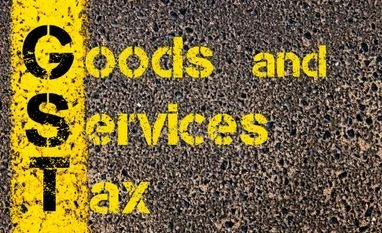Tamil Nadu, which initially had issues with the goods and services tax (GST), has said that the state is fully committed to the GST rollout and its successful implementation. The state has also submitted its views on specific provisions of the draft laws in writing.
The state said as soon as the Central GST (CGST), the Integrated GST (IGST) and the compensation laws are enacted by Parliament, it will be in a position to place the State GST (SGST) Bill before the state legislature.
Former Chief Minister J Jayalalithaa had consistently raised many issues like the impact on the fiscal autonomy of states, huge loss of revenue that manufacturing -- and net-exporting states -- would suffer, need to guarantee compensation for the State's loss through an independent mechanism, loss of revenue on account of lower tax rates on declared goods, need to keep petroleum products and alcoholic liquor for human consumption outside the ambit of GST, issue of dual control, fixing of thresholds and exemptions, revenue neutral rates, among others.
Many provisions of the Constitutional Amendment Bill were suitably modified after Tamil Nadu raised concerns in many forums, even during Parliament session. Once the Bill was passed by Parliament, Tamil Nadu has continued to play a proactive and positive role in the GST Council.
Speaking at the GST Council in New Delhi, Tamil Nadu Finance Minister D Jayakumar said that concerns raised by the State have been accommodated and this augurs well for the development of a healthy federal system where the State and Centre are equal partners.
The state expressed satisfaction over some issues, which have been addressed by the Centre, including the removal of provision having special treatment of declared goods, keeping alcoholic liquor meant for human consumption and petroleum products outside the purview of GST and most importantly, proposing an independent mechanism for Compensation of loss under the GST regime for a period of five years through a statute. The method of calculating the loss and the compensation mechanism in a fair and transparent manner is also to be appreciated.
The vexatious issue of cross empowerment has also been resolved amicably. Last but not the least, all the statutes — the CGST, SGST, IGST and the Compensation Law — have been finalised after thorough discussion and debate. Few remaining issues will also be resolved in a similar fashion, Minister said while addressing GST council members.
The state has highlighted two provisions in the draft law, namely Section 6 of the CGST Law and Section 4 of the IGST Law. These provisions deal with the powers of Central and State Officers.
The state said that in the present scenario when the Council has decided that the Assessee base will be divided between the Central and State Government authorities in a certain ratio, the State and Central Government Officers should exercise equal powers under all three Laws — SGST, CGST and IGST.
This should be provided by the law itself and should not be given under any notification, the state said, adding that it would like to draw attention to Section 9(2) of the Central Sales Tax (CST) Act, 1956, wherein the powers to assess, reassess, collect and enforce payment of any tax, including any interest or penalty, has been vested with the State Officers even though the CST Act is a Central Act.
The exact formulation has been submitted in writing by the state, which requested the Centre to adopt or the provision should be redrafted to ensure full cross empowerment through the law itself.
The state has assured that Tamil Nadu is fully committed to the rollout and successful implementation of the GST.
The state has migrated 519,000 dealers out of a total of 601,000 dealers (86%) till date within in a short time, from January 2017.
"We are fully geared up as far as IT hardware is concerned. Software customisation is also progressing well. As soon as the CGST, IGST and Compensation Laws are enacted by Parliament, we will be in a position to place the SGST Bill before the State Legislature," said a state representative.
Unlock 30+ premium stories daily hand-picked by our editors, across devices on browser and app.
Pick your 5 favourite companies, get a daily email with all news updates on them.
Full access to our intuitive epaper - clip, save, share articles from any device; newspaper archives from 2006.
Preferential invites to Business Standard events.
Curated newsletters on markets, personal finance, policy & politics, start-ups, technology, and more.
)